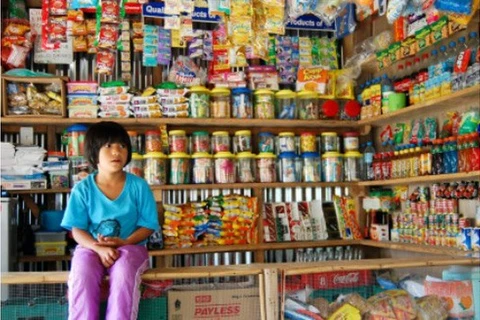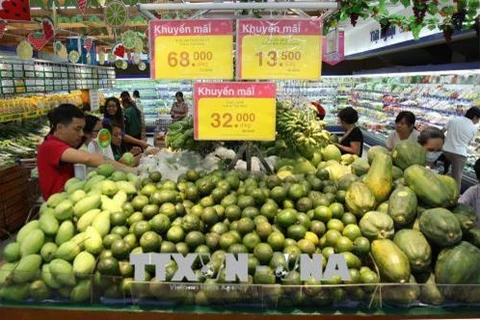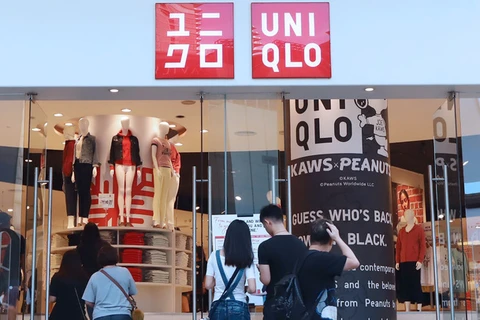HCM City (VNA) – Domestic retailers must work to outline rational business strategies to gain a competitive edge over their foreign rivals, especially as the local retail market has become more attractive than ever to foreign investors.
According to statistics from the General Statistics Office, thanks to strong growth, the Vietnamese retail market has been billed as an apple in the eyes of foreign investors. The retail sale market was valued at 88 billion USD in 2010, which surged to 130 billion USD seven years later, and is expected to reach 179 billion USD by 2020.
American consulting firm A.T. Kearney said that Vietnam is now home to 800 supermarkets, 150 shopping malls, 9,000 traditional markets, and some 2.2 million household shops. In the past year, more than 100 convenience stores were opened in the country, most of which are owned by foreign firms and groups.
Japanese giant Family Mart has put 130 stores into operation in Vietnam so far, setting a target of an additional 700 by 2020. Another Japanese retailer, 7-Eleven, has also gained a foothold in the Vietnamese retail market since June 2017, with an ambitious plan to develop 100 stores over the next three years and 1,000 in the next ten years.
Meanwhile, Lotte Mart from the Republic of Korea (RoK) has already announced plans to develop a chain of 60 stores in the country.
Many e-commerce tycoons like US-based Amazon and China’s Alibaba have jumped into the Vietnamese retail market.
The market has also seen several big mergers and acquisitions (M&As) in recent years. With well-known brands like Big C, MM Mega Market, Robins, Nguyen Kim, and Lan Chi Mart, Thai investors have a range of modern retail types in Vietnam, from shopping malls to convenient stores.
According to Chairwoman of the Vietnam Retail Association Dinh Thi My Loan, in the retail sale race, Vietnamese firms need to build long-term strategies, develop professional staff, and capitalise on their strengths such as understanding their customers’ practice and psychology.
The successful businesses of The Gioi Di Dong JSC and FPT Digital Retail JSC in the IT sector; and Bibomart, Kids Plaza, Tuticare, and Shop tre tho in the childcare sector are perfect examples of this.
Notably, Vietnamese Kowon Co., Ltd., has entered the retail market with five mechanical equipment shops across the nation. They sell famous products manufactured by renowned Bosch, Makita, Stanley, and Weldcom, among others. The firm is looking to establish 15 Kowon shops and 20 franchised others by 2019.
Recently, Vincommerce, a member of Vingroup JSC, completed its acquisition of the entire Fivimart supermarket chain with 23 supermarkets from Nhat Nam JSC. This will help Vietnamese products increase their presence in the retail sale network around the country. VinGroup now has 65 Vinmarts, and 1,000 Vinmart convenience stores across the nation.
Furthermore, Sai Gon Co.op has successfully developed nearly 100 supermarkets, 150 Co.op Food stores, 150 Co.op Smile stores, and 50 Cheers convenience stores as joint ventures with NTUC Fair Price from Singapore.
Marketing Director of the Sai Gon Co.op Do Quoc Huy said that his company will continue to maintain 90 percent of Vietnamese products on its shelves, helping local producers have better access to domestic consumers, thus gaining a foothold in the market.
Vu Vinh Phu, a retail sale expert, suggested that local firms focus on developing their brands and boosting both online and direct sales. –VNA
VNA

























